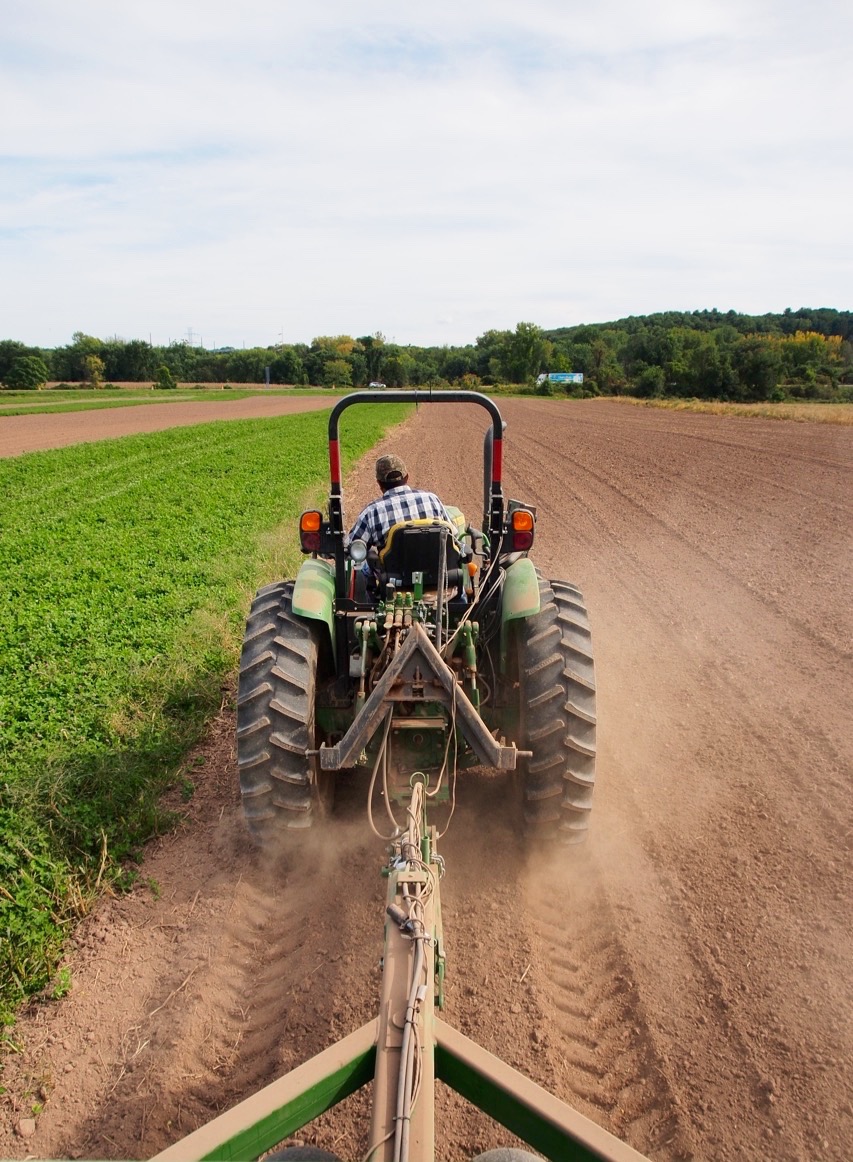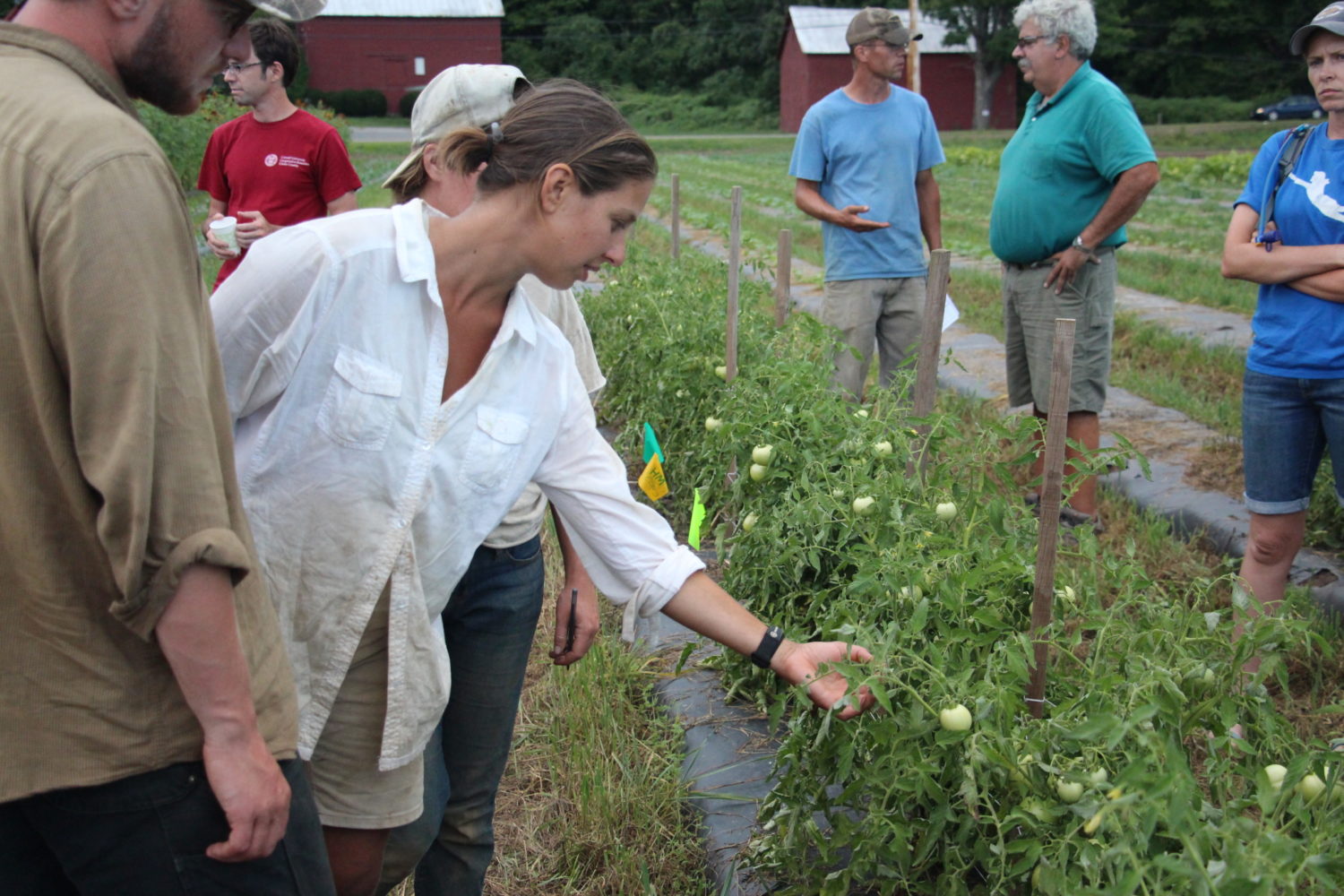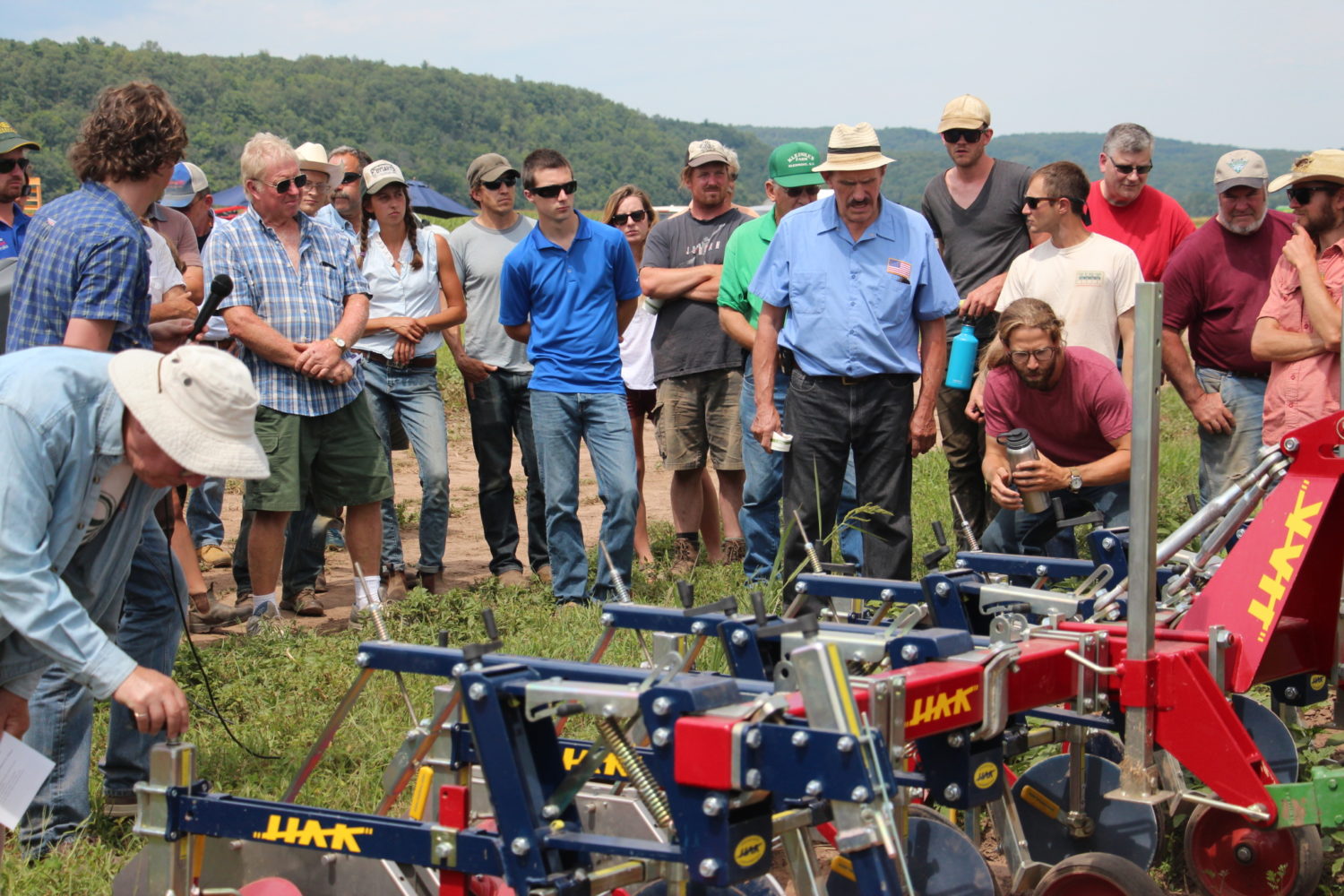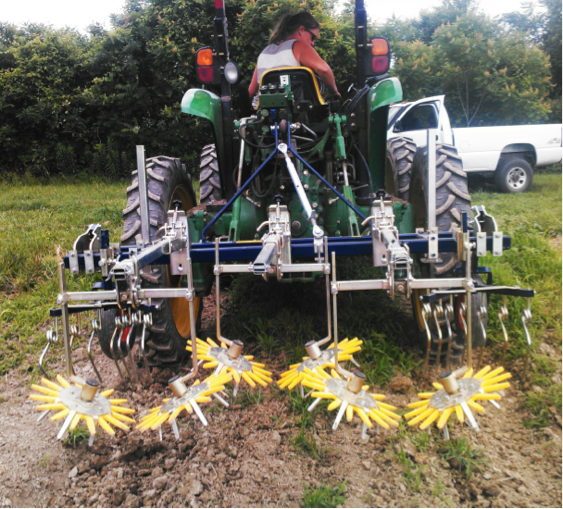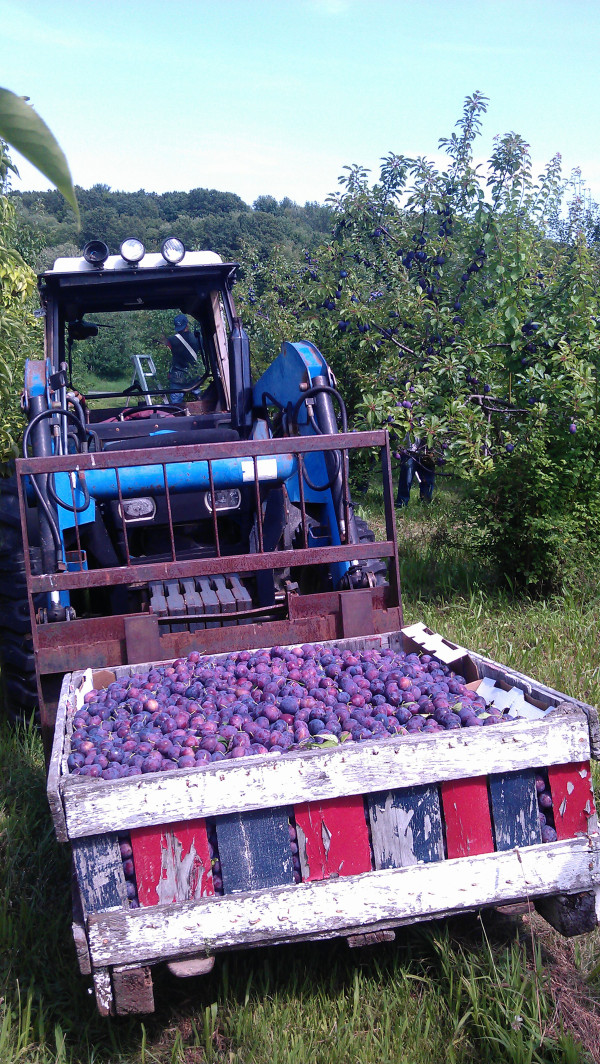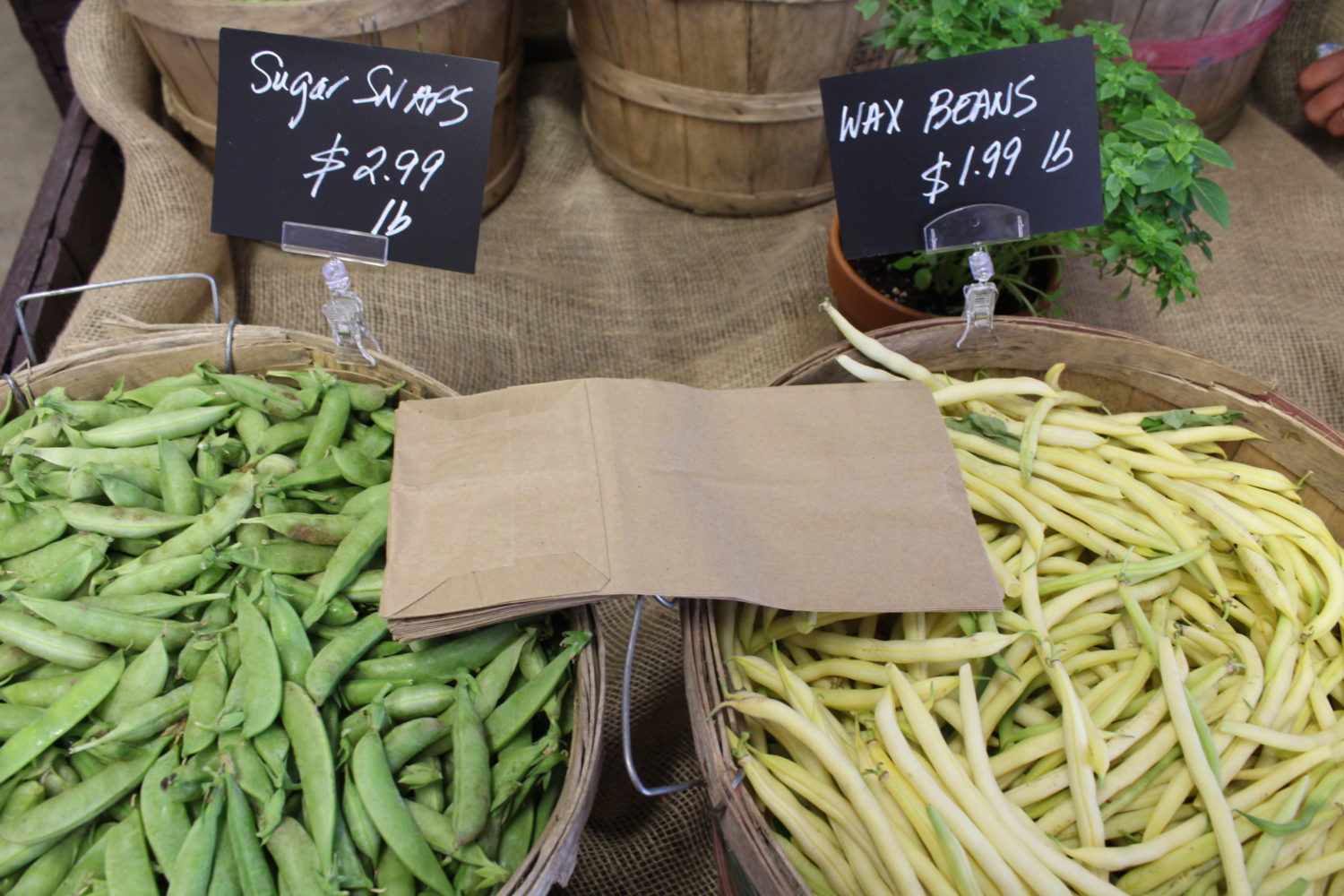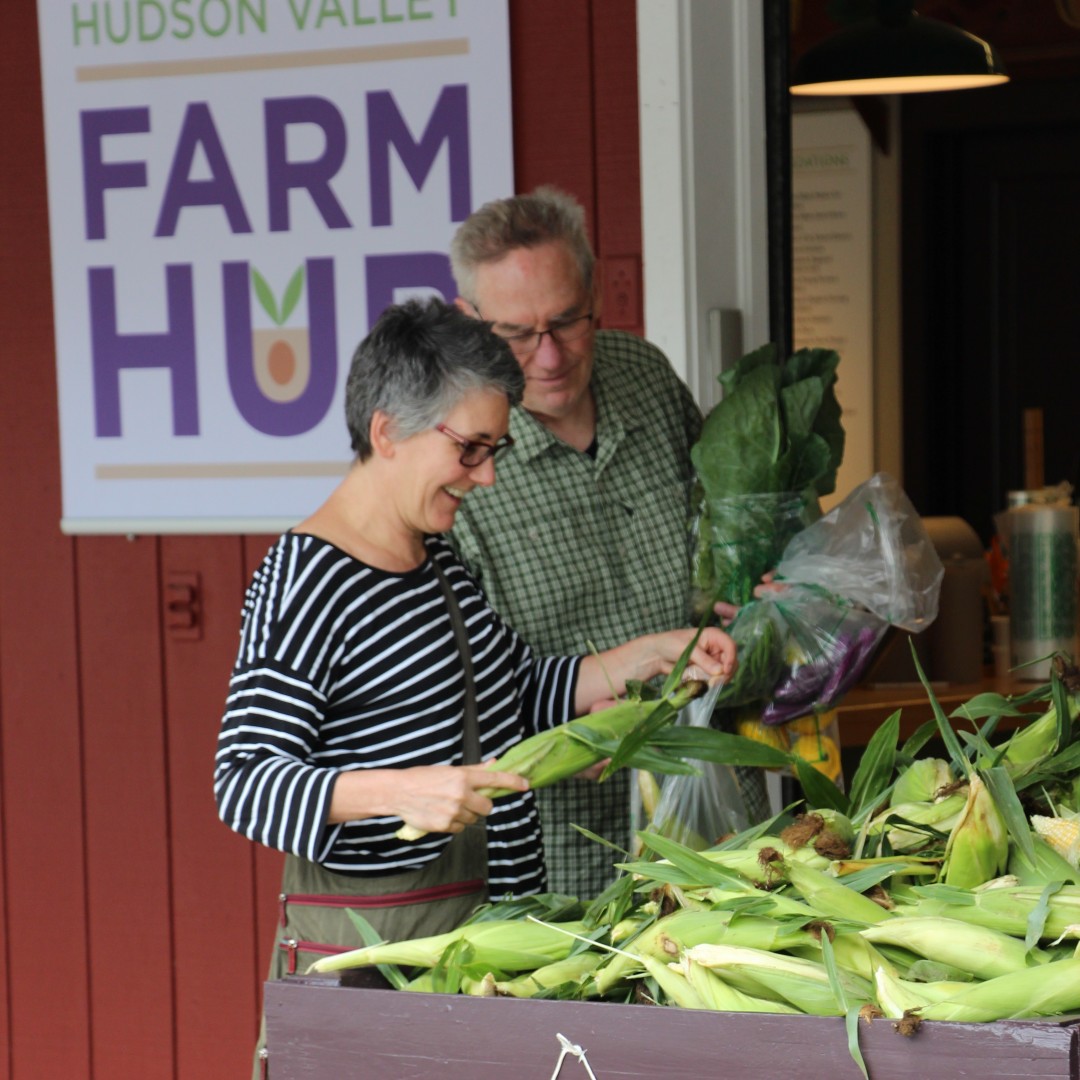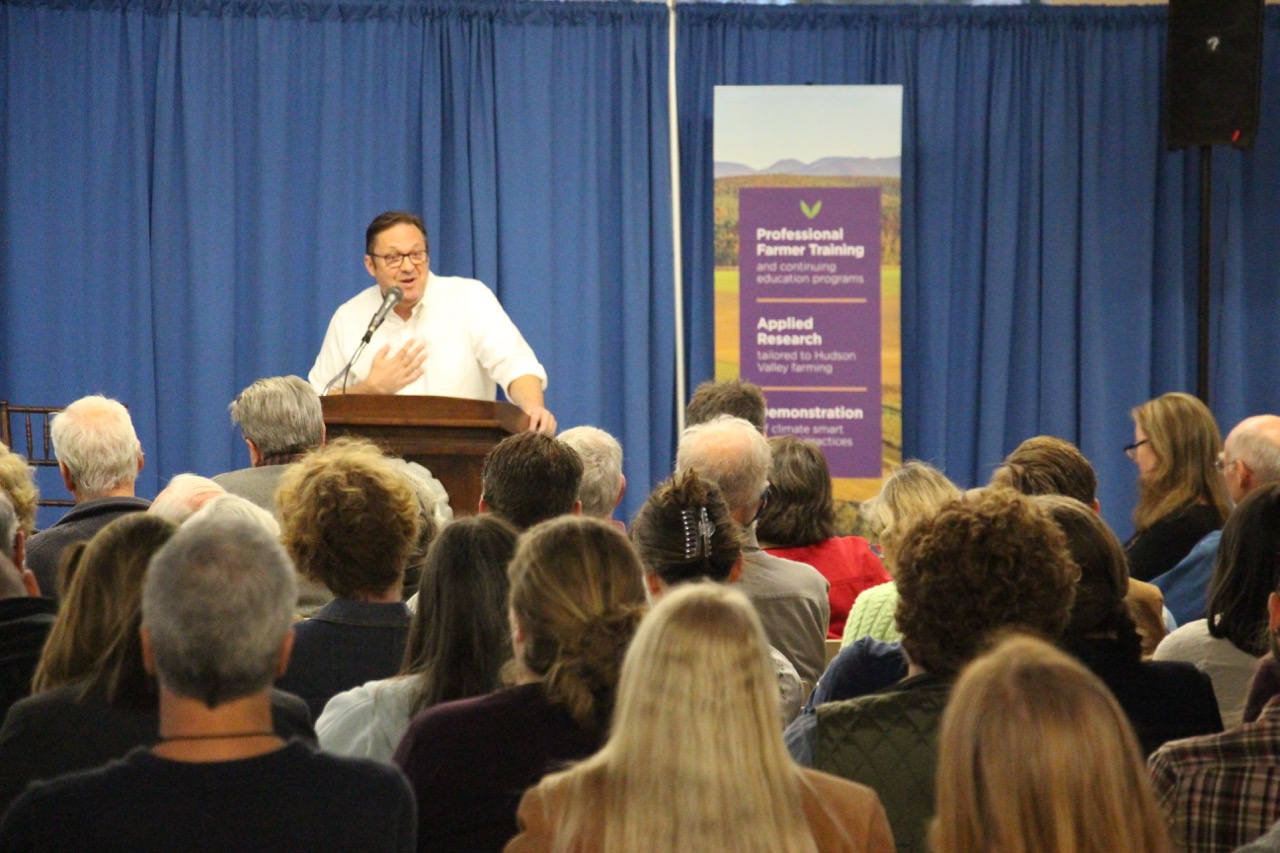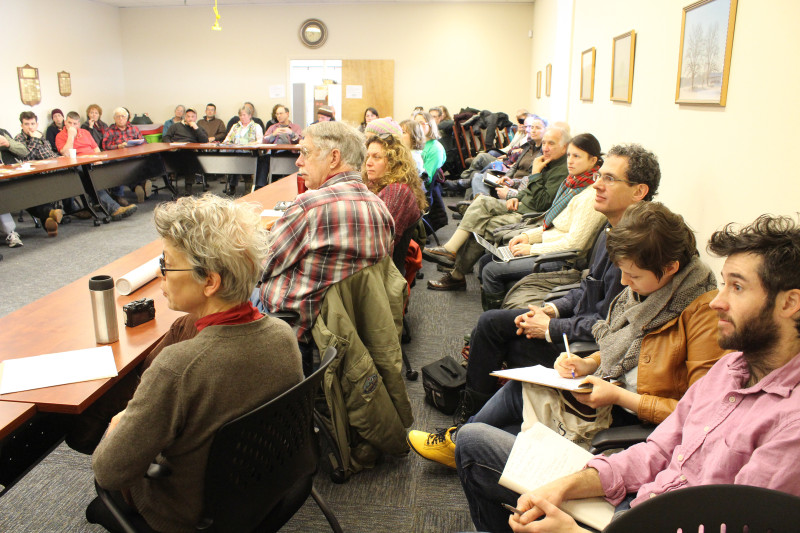On a clear day in late September Cornell University researchers returned to the Farm Hub’s northernmost fields to plant a series of carefully selected winter grains. The planting activity, the last of the 2015 growing season, marked the end of the second year for our small grains field trials, a multi-year collaboration between the Hudson Valley Farm Hub, Cornell University’s College of Agriculture and Life Sciences, and Cornell Cooperative Extension of Ulster County. Made possible through funding from Local Economies Project, the trials were initiated in the spring of 2014 as part of a regional effort to revive small grains production and to help Hudson Valley farmers respond to a burgeoning market for locally sourced grains.
This past July, researchers harvested multiple varieties of winter rye, wheat, and malting barley from small test plots. Dr. Mark Sorrells, Professor of Plant Breeding & Genetics at Cornell University and his team assessed each variety for multiple traits including yield potential, and disease resistance. His preliminary results, now available, formed the basis of the selection process for the September planting. Among the varieties chosen were four winter wheats (‘Medina’, ‘Pride of Genessee’, ‘Warthog’, and ‘NuEast’), one hybrid rye (‘Brasetto’), and one malting barley (‘KWS Scala’).
The 2015 growing season turned out to be challenging growing year for small grains. Unpredictable weather brought both extremely dry and intensely wet periods. It was what Dr. Sorrells jokingly called, “A great year for the plant pathologists” since so many different diseases were apparent in the small test plots.
Even in a normal year, the region’s humid climate is challenging as it can facilitate diseases that are highly problematic for grain production. Perhaps the biggest threat is vomitoxin (AKA Deoxynivalenol or “DON”), a toxic substance generated in plants infected with Fusarium head blight. Unacceptably high levels of vomitoxin can render an entire harvest unusable, in part because the FDA has strict standards for allowable levels in wheat products for different end users, ranging from ten parts per million for grains used in cattle feed, to one part per million for finished wheat products for human consumption. Thankfully, in spite of the volatile weather this year, vomitoxin levels in the winter grain test plots were within the range of acceptable for human consumption.
Early next year, one of the trial’s top-rated hard red spring wheats will be sent to local milling and baking partners for end-user testing. The grain will be milled into flour by Wild Hive, after which Bread Alone and Our Daily Bread will test the flour for baking performance and flavor. These evaluations will help inform variety selections for the trial as it progresses.
The cycle of planting, harvesting, and testing will continue for three more years until the final winter grains are harvested and tested. Once all the results are compiled and shared, the Hudson Valley will be one important step closer to reclaiming its place as New York’s breadbasket.

